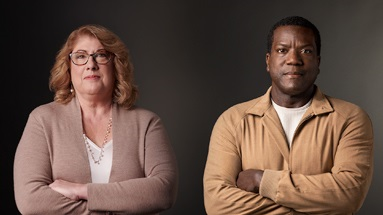Colorectal Cancer Cleveland Clinic Foundation video
Colorectal Cancer Cleveland Clinic Foundation video
What is colon cancer?
So cancer starts when the cells start to grow uncontrollably.
Colon cancer is when the growth starts on the inner lining of the colon. We call that polyps. Some of these polyps, not all, could progress over time to cancer.
This growth, thankfully, is very slow and it takes about 10 to 15 years, which is plenty of time for us to identify these polyps through screening. Remove them before they turn into cancer.
I would like to know how would I know if I was at risk for colorectal cancer?
Everyone who has a colon is at risk of colon cancer. The risk obviously goes up as you age and the vast majority of colorectal cancer are diagnosed after the age of 50. There are several risk factors to colorectal cancer. Some are modifiable which you could act upon in order to reduce your risk for colon cancer, and those include: smoking, alcohol consumption, lack of exercise and excess weight.
Are African Americans at a higher risk for colon cancer than other races?
African Americans are at increased risk for colorectal cancer, and this is primarily thought to be due to lack of access to care and socioeconomic factors. But screening is effective on everybody and it's important to report to your doctor when you turn 45 to start colorectal cancer screening.
So what are some of the signs and symptoms that I should look for?
Symptoms include rectal bleeding, so, blood in the stool, weight loss, unexplained and persistent abdominal pain, excess fatigue and lack of energy. Obviously, any change in your bowel habits, new-onset, constipation, diarrhea should also raise a concern and you should report that to your doctor.
How do I know when to get screened?
Screening for colorectal cancer should start at the age of 45 in the absence of family history or a condition that puts you at a higher risk for colon cancer. Obviously, if you're experiencing any symptoms, you should report that promptly to your doctor.
What is a colonoscopy? Is it painful?
Colonoscopy is the preferred screening method because it allows us not only to look inside of your colon and detect polyps, but also remove them at the same time. Colonoscopies are usually not painful. They are done with sedation, what we call twilight sleep. It's moderate sedation, a combination of a sleeping medicine and a pain medicine to make you sleepy and comfortable throughout the procedure.
Is it necessary for me to bring someone along for my colonoscopy appointment?
Yes, you do need to have someone with you when you come into your colonoscopy appointment. The procedure is done with medication to make you sleepy and comfortable, so you're not going to be able to drive back home, so having a ride is key, otherwise the procedure could not be performed.
I'm not sure I'm ready for a colonoscopy. Are there any other options for screening?
The colonoscopy is the gold standard that we use to detect colon cancer, and we begin looking for colon cancer at the age of 45. However, if for some reason a patient cannot get a colonoscopy, then there is a stool-based test that we do called the fecal immunochemical test. This test can also help us screen for signs and symptoms of colon cancer.
Colon cancer is the number three cause of cancer deaths in our country. And so you may have those polyps before you have any symptoms. You might not have any rectal bleeding or bloody stools, but you should go talk to your healthcare provider about getting screened for colon cancer.













